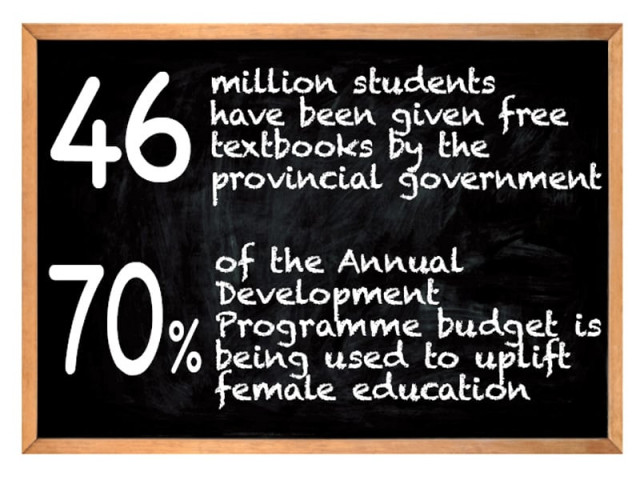Higher secondary education: In K-P, 100 UCs without high schools
Govt is dependent on donor agencies, says official.

Out of 990 union councils in Khyber-Pakhtunkhwa (K-P), a 100 do not have high schools.
A senior planning officer for elementary and secondary education department, Hashmat Khan, told The Express Tribune that resources currently available for education are inadequate, adding that donor organisations need to divert funds to establish high schools.
Government activities are dependent on donor agencies, said a secondary education department official, Jamal-u-Din. Regular funds should be allocated for periodic capacity building programmes and for training teachers as well as administrative staff, he said.
The deputy director of the same department, Naveed Khan, however, said that 70% of the Annual Development Programme budget is being used to uplift female education.
The government has provided free textbooks to 4.6 million students and model schools have been established across the province, claims Khan. Teachers who are subject specialists have also been regularlised and been given a service structure, he added.
The education sector reforms unit’s deputy director, Farid Khattak, said that favouritism is rampant and political affiliations in certain union councils help them win resources. Some union councils have three high schools because of political interference.
Most areas in K-P lack proper planning, making it difficult to determine on the basis of population where the need for new high school lies, Khattak said.
Conservatism also plays a role as female education is neglected, which reduces the need for schools in those localities. These areas also face a shortage of teachers.
People are also responsible for pushing the issue, in addition to the government, Khattak said. They must contact their provincial or national representative and address their concerns about not having a high school. They must do this for the larger interest of boosting overall literacy, he added.
Jamal-u-Din said that policies were devised but lack implementation. This could be attributed to the lack of political commitment, in addition to non-allocation of funds. Programmes are not monitored and implementation is not checked upon, he said.
Published in The Express Tribune, October 9th, 2012.













COMMENTS
Comments are moderated and generally will be posted if they are on-topic and not abusive.
For more information, please see our Comments FAQ